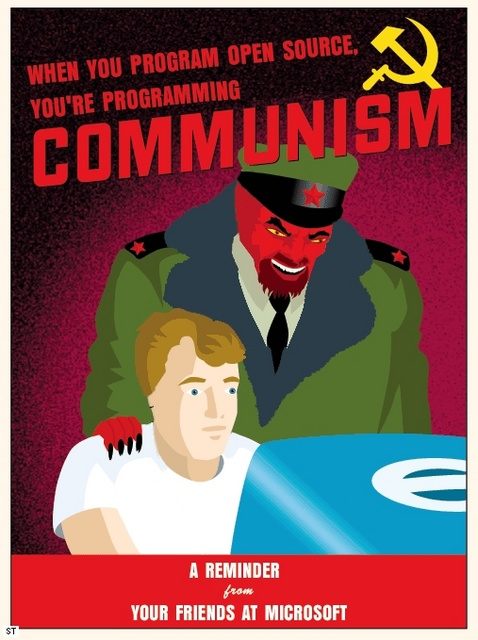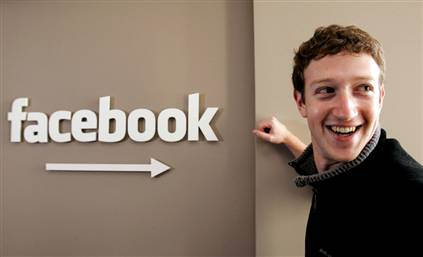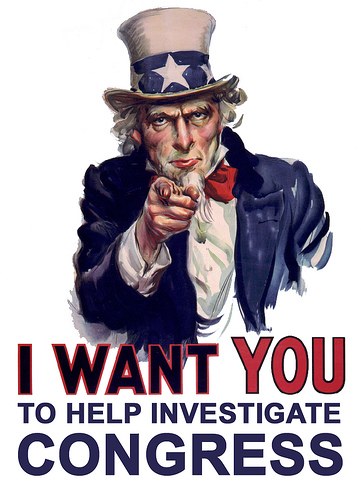Back in March, I spent the weekend in DC at TransparencyCamp, an unconference focused on government transparency and open access to sources of federal data. Down the street, a social-media savvy conference called PowerShift convened over 12,000 of the nation’s youth to march on Congress to have their concerns about the environment heard. They were largely brought together on social networks like Facebook.
Earlier that week, after an imbroglio about a change to their terms of service, Facebook published two plain-language documents setting the course for “governing Facebook in an Open and Transparent way“: a Statement of Rights and Responsibilities coupled with a list of ten guiding principles.
The week before that, the Association for Computing Machinery (ACM) released a set of recommendations for open government that, among other things, called for government data to be available in formats that promote reuse and are available via public APIs (application programming interfaces).
This year, we’ve seen Mutual Aid in Motion.
From scaling sharing hubs to Mutual Aid 101 trainings, we’re helping communities build the tools they need.
Every dollar fuels lasting resilience – proving that when we move together, we all move forward.
WTF is Going On?
 Clearly something has happened since I worked on the Spread Firefox project in 2004, a community-lead initiative tasked with marketing Firefox, the open-source web browser. At the time, the open source was easily dismissed as an outpost for “modern communists” and hippies (since meritocracy and sharing equals Communism, apparently).
Clearly something has happened since I worked on the Spread Firefox project in 2004, a community-lead initiative tasked with marketing Firefox, the open-source web browser. At the time, the open source was easily dismissed as an outpost for “modern communists” and hippies (since meritocracy and sharing equals Communism, apparently).
Today, even Microsoft is slathering “open” over several of their projects — heralding the “heros of open source” and sponsoring their own open source repository called CodePlex. Perhaps the pinnacle of progress was candidate Obama’s embrace of open source to help him win the election, and his subsequent push of similar solutions once in office.
From Microsoft to Obama, the culture of “open” is being embraced by even the most conservative and blood-thirsty organizations, each falling over the other to claim the mantle of being the most open of them all. Steve Ballmer once called Linux a “cancer”; now Ray Ozzie, assumed successor to Bill Gates, claims that “open source is a more disruptive competitor than Google.”
So we "communists" won, right?
I wouldn’t say that. In fact, I think it’s now when the hard work begins. Though the strides that the open source community has made cannot be underestimated, the real change lies in the changed expectations of the forthcoming generation. From work to personal life; from school to friends and family; from shopping and sharing, Generation Open’s behaviors, ideas, and new norms will reshape the world. The old school has little left to defend its crown; the change is upon us.
Our Web
Let’s start with Facebook, just because 300 million users can’t be wrong.
The people who create Facebook not only believe in what they’re doing but are on the leading edge of Generation Open. It’s not merely about age; it’s a mindset. It’s about having all your references come from the land of the internet rather than TV and becoming accustomed to — and taking for granted — bilateral communications in place of unidirectional broadcast forms. Where authority figures used to be able to get away with telling you not to talk back, Generation Open just turns to Twitter and lets the whole world know what they think.
But it’s not just that the means of publishing have been democratized and the new medium is being mastered; change is flowing from the events that have shaped my generation’s understanding of economics, identity, and freedom.
 Maybe it started with Pearl Jam and grunge and the era that screamed “drop the leash.”
Maybe it started with Pearl Jam and grunge and the era that screamed “drop the leash.”
Or perhaps it was more subconscious — like witnessing AOL incinerate Netscape, only to see a vast and distributed network emerge to champion the rise of Firefox from its ashes.
Maybe being bombarded by stinking piles of Flash and Real Player one too many times lead to a realization that, “Yeah, those advertisers ain’t so cool. They’re fuckin’ up my web!” Of course watching Google become a residue on the web itself, imbuing its colorful primaries on HTTP, the native protocol of the web (as a lichen seduces a redwood, becoming inseparable from the host) also suggests a more organic approach to business as usual.
Talking to people who hack on Drupal or Mozilla, I’m not surprised when they presume openness as matter of course. They thrive on the work of those who have come before and in turn, pay it forward. Why wouldn’t their work be open?
Considering that many of Facebook’s critics have chided them for being “closed” (in spite of the arc of their brief history), you might not expect openness to be a part of their culture. Similarly, talking to Microsoft you might presume the same. In the latter case, you’d be right; in the former, I’m not so sure.
 See, the people who populate Facebook, from CEO Mark Zuckerberg on down, are largely from Generation Open. They grew up in an era where open source wasn’t just a bygone conclusion — it was innate to learning to code!
See, the people who populate Facebook, from CEO Mark Zuckerberg on down, are largely from Generation Open. They grew up in an era where open source wasn’t just a bygone conclusion — it was innate to learning to code!
The kids who aced computer science class — learning how to code for Windows and Java environments — they ended up at Arthur Anderson, Accenture, or Oracle (and probably became equally boring). Instead, it was the hobbyist kids who cut their teeth writing WordPress plugins, Firefox extensions, or Greasemonkey scripts that found success because of openness who are leading the development of Facebook’s massive platform effort.
That people like Zuckerberg talk about making the web a more “open and social place” where it’s easy to “share and connect” is no surprise: it’s the open, social nature of the web that has brought them such success, and will be the domain in which they achieve their magnum opus. They are the original progeny of the open web: its natural heirs.
But it is surprising that people in organization from Best Buy to Comcast are also embracing these values — though haltingly at best.
While the C-level brass continue their capitalist march towards profit, individuals within the bellies of these beasts are discovering social media, and the satisfaction of connecting with and actually serving customers directly. It’s almost as though the employees — through their engagement with the wider community — are turning their companies into massive open source projects — patching the woefully efficient and sterile customer service systems (often run by robots!) with care and attention, and then documenting their good works on the company wiki and through Twitter.
Giving it All Away
 Back to this weekend in DC.
Back to this weekend in DC.
You put TransparencyCamp in context — and think about all the abuses that have been perpetrated by humans against humans throughout time — and you have to stop and wonder: “Geez, what on earth will make this generation any different than the ones that have come before? Who can say that Zuckerberg (once he assembles a mass of personal information on his peers at an order of magnitude never achieved since humans started counting time!) won’t turn into Stalin?"
This fear is justified. If you want to know why privacy is important — look to the power of aggregate knowledge in the hands of racists and xenophobes 70 years ago, in fascist Europe and imperial Japan. Consider the Vietnam era and the recent genocides in Rwanda and Darfur. Information imbalance is power; and in the hands of the greedy and hateful, it becomes irrepressible — something that our parents’ generation experienced, if not perpetrated.
So it’s no wonder that the Facebook newsfeed (now the “stream”) and Twitter make folks of previous generations so uneasy: the potential for abuse is so great and our generation — our open, open generation — is so beautifully naive.
 What we don't know can't hurt us — yet — and already our attitude and behaviors are infecting culture and spreading widely. It wasn't so long ago that major publishers derided our tweeting as "trivial" — now rely on it and the network we've built up for traffic and raising visibility of their content. I can still remember how awkward and offensive candidate McCain's "McCainSpace" site looked compared with Obama's sophisticated and deliberate use of social media — branching off barackobama.com and into Facebook. He got it, and embraced the network, and won the presidency.
What we don't know can't hurt us — yet — and already our attitude and behaviors are infecting culture and spreading widely. It wasn't so long ago that major publishers derided our tweeting as "trivial" — now rely on it and the network we've built up for traffic and raising visibility of their content. I can still remember how awkward and offensive candidate McCain's "McCainSpace" site looked compared with Obama's sophisticated and deliberate use of social media — branching off barackobama.com and into Facebook. He got it, and embraced the network, and won the presidency.
Certainly the threat of hegemony and authoritarianism hasn't been diminished in our modern era — but it's much harder to conceal, as evidenced by the worldwide reaction to the Iranian election fiasco. One only needs to consider that the US State Department asked Twitter to postpone a scheduled service outage during the Iranian protests to realize how critical these services have come to global policy and discourse.
Our work, however, is just beginning. We do not yet know what the future will look like, or how these vast networks and technologies will ultimately be put to use, but keeping track of the pulse of the planet sets us considerable apart from the information flows of past generations.
If we are Generation Open, then we are the optimistic generation. Ours only comes around every several generations with the resurgence of pure human spirit coupled with the resplendent realization of intent.
There are, however, still plenty who reject this attitude and approach, suffering from the combined malaise of “proprietariness,” “materialism,” and “consumerism.”
But — I shit you not — as the world turns, things are changing. Sharing and giving away all that you can are the best defenses against fear, obsolescence, growing old, and, even, wrinkles. It isn’t always easy, but it’s how we outlive the shackles of biology and transcend the physicality of gravity.
To transcend is to become transparent, clear, open.
This essay appears in the new Shareable ebook collection Share or Die, which is now available in downloadable and free online forms. For the next piece in Share or Die, Corbyn Hightower's "When Your Community Lets You Down" click here.

